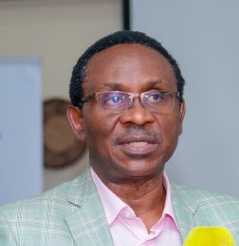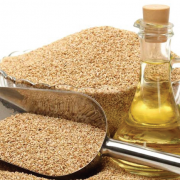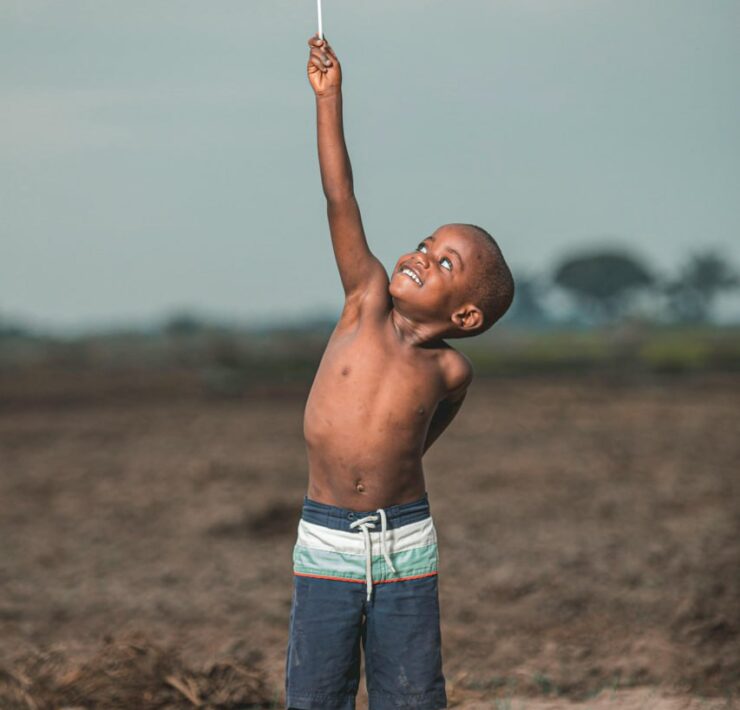Interview with Dr. Mokaya

Passionate about getting God's message concerning Afrika and the end…
We had the opportunity and privilege to talk to Dr. Peter Ogere Mokaya, the Director of Organic Consumers Alliance in Kenya about the real solutions to dis-ease in Afrika that are found in organic food and a lifestyle and ecosystem reset to return to a place of harmony and balance. This is an excerpt of that conversation, the full interview is available on Msingi Afrika TV.
What is organic food and farming and why does it matter?
To really simplify it: it’s food grown the natural way. The natural way meaning the way our grandparents grew food, in tandem with nature; mixed variety plants, chicken, goats, cows all together and using natural products and elements to grow the food, without the use of synthetic agrochemicals. That’s a very key distinguishing feature. It’s the kienyeji (local) way it was grown before we were “civilized” to start using things which were manufactured somewhere in a factory and brought to supposedly enrich the soil. So, as much as people think that it’s a foreign concept, it’s a very Afrikan concept, it’s a very human concept. It’s in tandem with the natural cycles of how people live with plants, with animals and with the entire ecosystem.
What are its benefits?
I wouldn’t even call them benefits; it’s the goodness that flows out of organic farming, because it’s informed by the principles of fairness, of love, of care and of being in alignment with natural systems. The benefit is that if we align ourselves with that, we will be in a state of balance. There will be enough to consume and enough to allow the environment to be in a state of balance. Because of the interferences that we have done, the ecosystem is in a state of imbalance, a state of not being at ease. What we call dis-ease. And these disease manifestations are in human beings, in animals, in plants and even in the soil below the ground. So, organic is that which is in tandem with nature that allows the natural systems to regenerate and allow a state of balance to exist.
What is Afrika currently doing?
Afrika is currently largely doing organic, by default. We are considered a little primitive in our farming. We go to the ground, we get hold of the seeds, we store them, we eat some of them, preserve the best for the next season, we share them and we grow. So, most of Afrika has maintained that kind of farming, but, increasingly now, we are modernizing our farming from influence from outside. We are being told that that system of farming cannot create what they call, food security, so there’s need now to adopt the so-called modern farming systems. Where somebody manufactures certain agrochemicals or inputs in a factory and sells them to you to use them for enriching the soil and growing the food.
So Afrika is to a large extent still organic, by default, but we need to improve some of those systems of farming so that we can increase more of the ecosystem where we can grow both the plants and the animals… including indigenous varieties of plants, and then, of course, allow plant life and animal life to regenerate. Unfortunately, there’s a threat to that kind of way in which food was grown, by the interests that are usually commercial, from the people coming from the West.
The big companies that are coming up now with agrochemicals and fertilizers and saying, “Use this you’ll get a bigger yield.” Indeed, yes, you will receive a bigger yield because you are feeding the plant, but while you’re feeding the plant with the so-called agrochemicals, over time you are destroying the soil. Many farmers don’t realize that, but I think gradually now, many parts of Afrika – including Kenya – the maize-growing region like for example in Kitale, they are now realizing that the yield in spite all of the inputs of agrochemicals – the fertilizers, the chemicals – the yield has plateaued and has started going down.
We don’t want to go that route because then it destroys the soil pretty much permanently. Then, of course, if you do that, you can’t achieve food security.
Are policy-makers sensitive to the issue of organic farming versus chemical agriculture? And how are they responding?
Yes and no. You may not realize this, but policy-makers in Afrika are pretty much under the pressure and the influence of these profit-making outside influences. I would say that they are aware, but what they are doing is not good in the long-run but they are, I think, “being blackmailed” by those forces who want to promote the agrochemical farming, who want to sell their fertilizers, their agrochemicals because there is an increase in yield for the first 2-3 years.
But now, especially more recently with the experience of Covid, I think many of the policy-makers are realizing that it’s good to stick to our old ways and our old ways of growing foods, of course using research to enhance productivity but to minimize agrochemicals, external inputs. Before you did not need to buy organic fertilizers, because you used compost and manure and mulching. Nature just provided for you right within the soil, within your compound. It was more affordable, more cost-effective to produce food, which was more in yield and also it was healthy and free from these chemical toxins.
We are hearing more cases of cancer in connection with Roundup and not only in the US but in Kenya as well. Do you think that there are some policy-makers who are willing to go back to the traditional way? Who are actually actively pushing to save our bodies?
I am one of those persons among a team of many who has been sounding that warning and telling our policy-makers that, “Good people, you are slowly poisoning your own peoples and we are truly, surely dying or getting hurt from these agrochemicals.” Especially that one you mentioned. That contains glyphosate, also known as Roundup, also known by many other names including panga (machete), slasher, which the local people love to use because as far as they’re concerned, it’s a harmless weed killer.
It was even marketed for a long time that it’s safer than table salt and as something that you can drink and with no consequences. Which of course is big misinformation. Now research has clearly shown that when you spray that Roundup, it doesn’t only kill the weeds but it kills anything else that it considers a weed. There goes your tsaga (spider plant) your terere (amaranth), all those indigenous vegetables. All these according to western cultures, which in many ways are alien to our Afrikan ways of living, are considered weeds. So Roundup was found very effective and easily used less labor to do away with a huge space within a very short time. What we forgot was that not only did it kill the weeds, it also killed the microorganisms– it also destroys the life within the soil’s texture and the soil dies.
If you plant maize seed in that kind of soil, you will need the fertilizers from the factory which have potassium, nitrogen, phosphorous, which feed the root system of the plant as it kills any little life that was left in the soil. It’s a vicious cycle.
Then, of course, those toxins in the soil enter the root system, enter the plant, so when we eat those foods, gradually, it affects our entire health, from our gut system, it increases allergies, causes cancer as you mentioned, over time it’s particularly been associated with breast cancer for women and prostate cancer for men, brain cancers, liver cancers, kidney cancers… many other forms of cancers. And within that context of Roundup, it’s not just the glyphosate which is the key, there are other inert components within that Roundup concoction that are more toxic than glyphosate. To the extent that they are actually 10 to 100 times more toxic. Including formaldehyde, arsenic dioxide, and those are the ones that are 100% carcinogenic by WHO classifications and they are in our Roundup. The policy-makers know this, the regulators know this and they’re keeping quiet.
If we continue using more and more of these glyphosate-based chemicals herbicides and pesticides our rates of cancer, diabetes, cardiovascular diseases go up and we continue slowly killing ourselves. Of course, the healthcare costs will go up; monies that we could have spent for productive economic activities will go towards treatments and so on. And to link it up to Covid-19 obviously people who have more diabetes, more blood pressure and more cancer are more susceptible to Covid-19, as you have seen all over the world.
And to give you a good example, this is why there is more Covid in the US, which is a first-world country, and yet in a third world country like Kenya, we have much less Covid. To come closer home, that’s why there’s more Covid in South Afrika than in Kenya, why? They’re using more of that glyphosate, that Roundup and they’re eating foods that are more processed, that have GMOs. That’s another factor.
And because of that, when Covid comes, it finds their immune systems weak and puts them down. Sometimes doesn’t just put them down, puts them off completely. That’s absolutely awful. We have enough problems in Afrika as it is.
You mentioned GMOs separately from hybrid seeds, so what are GMOs?
That’s an interesting question and in different forums, I have asked that question and people think that GMOs and hybrids are the same thing. Actually, they are as far as the sun is from the moon or as the east is from the west. One is the product of natural selection and breeding, for example: If two people from different communities marry, their offspring is a hybrid. However, when you go to GMOs, they are genetically modified. The name itself says it, they are man-made seeds, where, using lab technology, seeds of different varieties sometimes plant and animals are mixed together to achieve certain desired traits in the lab and then released in the market to then grow.
The science is showing clearly that they have horrendous negative effects, both to the soil, to the other plant kingdom – if they are plants – and to those of us who consume them, they are being assailed with cancers again. Some of those GMOs are designed specifically not to die from glyphosate. So, clearly, these are monster kind of plants and you’re expected to eat them as a meal and you’re supposed to be normal after that abnormal encounter.
Quite frankly, on a serious note, we’re seeing that correlation right now in the US. The US is GMO country, Brazil is GMO country, South Afrika is GMO country, what do they have in common with Covid-19? They have much higher cases of Covid-19.
Where there is GMO there is glyphosate, almost always. 80% of the global market or supply of GMOs or what they call herbicide-tolerant, they are designed to use more glyphosate, so those who produce glyphosate are making more money.
The companies that own the patents for GMOs are the same companies that own the patents for glyphosate. They make money from the poison that is the agrochemical and they make more money from the seeds that are poisoned and they feed you with that, they make you sick, you get diabetes or cancer and then their friends in the pharmaceutical industry make more money from you until you finally die. Is that really fair?
And then you go to the next generation.
Then you go to the next generation. Now that you mention about the next generation, the latest research, published in Nature, which is a world top recognized magazine has shown that glyphosate – this is how evil this molecule is – this molecule of Roundup, does not just affect you and me right now it affects you and me to our third and fourth generation of offspring. The toxins from glyphosate affect your DNA, get stored in your DNA, passed on to your first generation, they may not manifest, but a second third and fourth generation will suffer from malformations, from cancers and from damages of DNA that they inherited from their grandmother or grandfather. This is published science. To the extent that the predictions are that the fourth generation, from a reproductive point of view, will not be productive; will be sterile. Because, among other areas, it also affects the reproductive ability of human beings.
This is mind-boggling, even for me as a physician, as a public health specialist, that that product can still be allowed to be in the market. And of course, to tell you how serious it is in the US already the sperm count for the males is less than 50%, in some areas it’s less than 25%. Same with Europe and all those areas where they have been using glyphosate for many years. It is an existential threat. And it’s not only doing this to human beings, it’s doing the same with animals, doing the same with the soil. There is an existential threat to the ecosystem from this one agro-chemical. This is science.
People know this, very few people indeed. Why would you want to allow such a product in the market? It doesn’t make sense.
Which brings us to a point you raised in one of your articles about the convergence of toxicity, maybe you can tell everyone a little bit about that?
That’s an area that many times people don’t see. One of the things that I have learnt to do is to join the dots. We are an ecosystem and different toxins from outside impact the entire ecosystem from human beings to animals to plants and to the soil. And once you realize that we are a part of this continuum then we ask ourselves if you apply a toxin in one particular area, how does it affect the rest of the ecosystem? For me right now there are several factors that have converged to create an environment of a possible human existential threat. One of them is what you just said, what we eat. We are increasingly moving away from organic and natural food, to food that has toxins. We are now introducing synthetic fertilizers, the NPKs the CADs that we put in the soil. “Oh, Dr. Mokaya what’s wrong with that? It’s phosphorus, potassium and ammonia.” What you forget is that those inputs also have heavy metals. One of the biggest sources of soil contamination is from those fertilizers. What are those heavy metals? Mercury, lead, cadmium, aluminium. These heavy metals not only poison the soil, they poison the plants, they poison the animals and those toxins come into ourselves and of course poison us and cause all sorts of diseases including different hormonal imbalances, cancers, diabetes, infertility. So that’s one key. Glyphosate and what we call organophosphates which are part of the Roundup group of toxins, then there are others we call organochlorides – all these synthetic products are hitting our body now.
We also have GMO; the deliberate human invention where you take God’s seed handed over from generation to generation and you tweak a little part of the DNA and then you say it’s your patent. When you put them together, the effect is synergistic, it gets worse. Two other things that come in: 5G; electromagnetic frequencies radiation this is coming in now even with 3G, 4G, 4½ G.
That electromagnetic radiation, is cooking us gradually.
That increases toxicity, causes DNA damage. This is published data, this is science. The other one is vaccines.
I am not against certain vaccines that are good for life: the measles vaccines, the polio vaccines of the earlier years. There are certain vaccines that work, but increasingly the vaccines also work with a healthy immune system. And of course, we are now living increasingly in an environment that has a lot of air pollution; toxicity from fumes of carbon particles from an environment that is generally toxic from other pollutants.
These environmental toxins have converged together to create a scenario where humanity and his normal coping mechanism, cannot cope.How can we recreate balance? We pull out of these lifestyles and revert to lifestyles that are more in tandem and in balance with nature.
A solution does not require millions or billions of dollars. It is a state of mind, a shift of policy and for me more love, more care, more appreciation of one another, there’s enough for all our needs in this world but there isn’t enough for all our greed.
It’s a scarcity mentality versus the balance mentality. The scarcity mentality is where you want to have everything more than you need as opposed to the balance mentality where we believe Mother Nature has enough for all of us and each one takes as per their needs as opposed to what we see manifesting globally where greed a.k.a. scarcity mentality informs most of the policy decisions globally, regionally, nationally and even locally. And, sometimes, unfortunately even up to community levels.
What work are you involved in at Organic Consumers Alliance?
Preaching the gospel, sounding the alarm, opening people’s minds right from the levels of policy, providing evidence to share with policy-makers from FAO from WHO, the global level. We try and work together with other like-minded people who are conscious truth seekers to influence policy at global level, regional level, and national level. We work with policy-makers with a view to shifting policy towards policies that are more in tandem with Mother Nature and with these cycles of balance. We also engage other stakeholders – academia – to generate the data, we work with other people who disseminate information to create more awareness and open the minds of the target group, which is all the population, so they are aware of the risks, the challenges and they can do something about it.
Shifting from one form of farming, one form of eating is good for everyone; it’s good for the economy, it’s good for the soil, it’s good for the climate, it’s good for the health, it’s good for the entire ecosystem, nobody loses. The only ones who lose are those who are greedy.
There’s a need for us to shift back from this convergence of toxicity to creating an alternative solution, which is a convergence of what is good. As you said, Covid the silver lining to it, the foods that were said were for poor people the tsagas (spider plant), the managus (Afrikan nightshade), the mitoos (slenderleaf/crotalaria) they are rich with zinc, they are rich with iron, they are rich with all these nutrients that protect and enhance the immune system. So when Covid comes knocking, Covid comes, knocks and goes away, doesn’t become resident.
We would like to leave two cents of a difference considering that there are so many negative forces around. We want to be the voice of light as opposed to the voice of darkness we want to be the voice of goodness and wellness as opposed to the voice of pain, hunger and suffering.
You also do certifications for organic foods or farmers?
Both food comes from farmers, so if the farmers are certified the food is likely to be certified. We don’t work alone, there are other certified entities who we collaborate with. It is a space where we realize some farmers are going out claiming they are organic when they don’t grow (organic). We do it not really as a core portfolio but as a portfolio to leverage awareness creation and then the farmers that we certify we train so that they can form clusters where they can become communicators around their niches. We also certify the outlets that sell organic products and those who want to export their produce for the different markets that they want to access.
I have to confess I was very surprised to find that a medical doctor trained in the University of Nairobi and Johns Hopkins, someone who has been working in public health and preventive medicine ended up also in the field of organics. How did this come about?
Many people, including my own mother, ask me that question. The reason why I am doing it is, that is the essence of preventive medicine. It’s a deliberate decision I made over time. People will think that it doesn’t make money. You don’t go into a career to make money, you go into a career to make a service and at some stage in my career, I realized one thing: No matter how hard you work mopping the floor, there will still be more water coming. It’s in the long term an exercise in futility because if you don’t seal or repair the leaking tap, the water will keep on flowing. There will be more diabetes, there will be more cancer, there will be more hypertension, there will be more diseases. The epidemic of non-communicable diseases that you see around has been created by our lifestyles and what we consume.
Meaning, and this is the good news, we can reverse these diseases.How do you deal with that? Organic food, food that is agroecologically grown, food that is safe, that is diverse, that’s natural. And I usually tell people, do the simple Pareto rule of thumb: 80% plant, 20% animal and of that 80% plant, 80% raw, 20% cooked. I wouldn’t say the same for animals but if the animals were safe, do the same again 80% raw including milk, eggs. That’s where you get the vitality, the enzymes and the nutrients. And the areas where they practice that kind of lifestyle, they call them the blue zones, people live a longer life and they are healthier.
Thank you so much Dr. Mokaya.
What's Your Reaction?
Passionate about getting God's message concerning Afrika and the end times to the world, in order to heal, restore and rebirth Afrika to her true purpose and destiny in God.
















